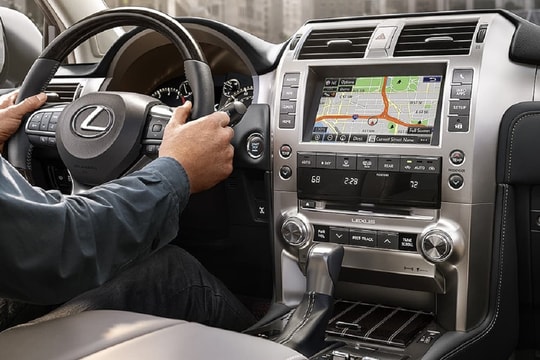9 bad habits that make cars wear out quickly
Putting your hand on the gear stick while driving, letting the gas run out, starting the car and driving off immediately, or constantly applying the brakes when going downhill, etc. are habits that can cause your car to have to go to the garage more often.
Like many other machines and appliances, our cars also have the characteristic of "durability depends on the user". This means that if the car is operated properly, maintained and cared for regularly, it will always be new and durable. On the contrary, if used carelessly and without knowledge, the car will quickly wear out and break down.
According to some car technical experts, many people, even though they have been driving for decades, still have driving habits that are harmful to the car, even causing serious safety problems. Therefore, if you have one of the following habits, you need to adjust immediately.
Let the gas tank get too low
Many drivers today often have the habit of letting the fuel needle touch the “red line” before filling up. However, according to experts, letting the fuel level get too low can damage the fuel pump system.
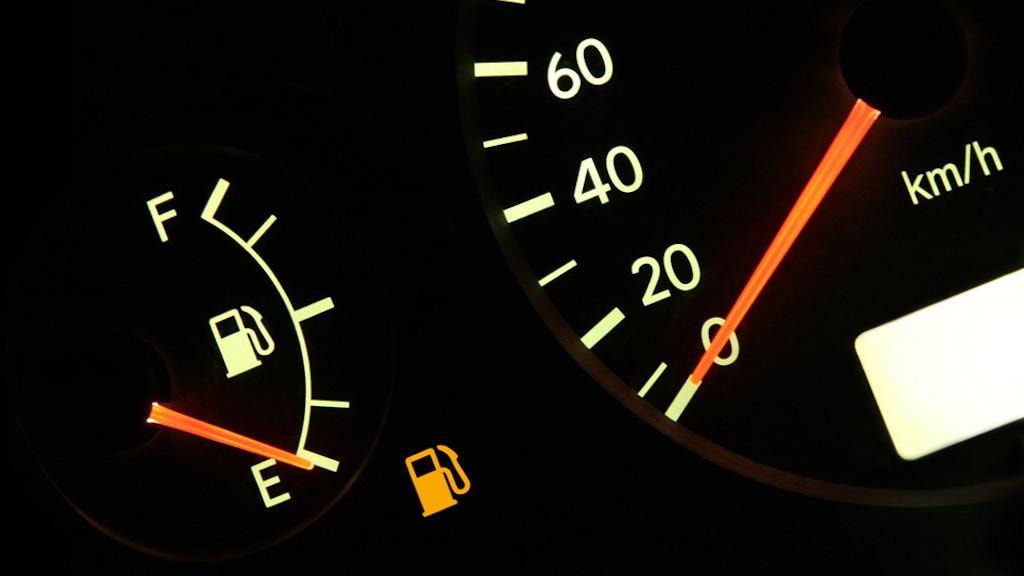 |
The reason is that most cars today have a pump inside the fuel tank, cooled by the fuel itself. A continuously low fuel level will cause the pump to overheat and work inefficiently.
This can lead to a sudden failure of the fuel pump, the vehicle being “on the road” and costing a lot of money for towing and repair. Experts advise that when the fuel tank is about 1/4 full, the driver must find a gas station to refuel immediately.
Driving with a low fuel tank is also not good because the fuel at the bottom of the car's tank often contains sediment. If this condition persists for many days, these impurities can clog the fuel filter and lines, which will force you to pay for repairs.
To keep your gas pump in good condition, you should always keep the gas tank at least a quarter full. If your car is not used much, you should keep the gas tank at least half full to minimize rust.
Start the car and put it in gear.
Many people, out of a hurry or out of habit, often get in the car, start it, and then go. However, this is a very bad habit and will damage the engine.
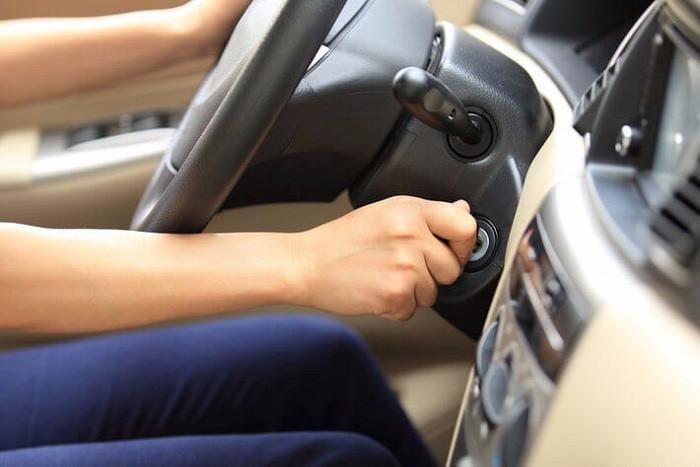 |
Automotive engineers explain that after a period of “resting”, the engine oil will settle to the bottom. If you start the engine and immediately shift gears, the oil will not reach all the parts evenly, while the engine has to work at high rpm, which will lead to rapid overheating and wear on the internal parts.
Experts recommend starting the car and letting it idle for about 30 seconds to 1 minute to let the oil reach all positions before shifting into gear and moving.
Rest your hand on the gear stick while driving
Some drivers habitually rest their hands on the gear lever to shift gears faster, especially in manual transmission vehicles. However, this habit can damage the gearbox components because the weight of the driver's hand pressing on the gear lever will be transmitted to the gears in the gearbox and cause them to wear out and damage quickly.
This is also a completely bad habit because when encountering unexpected situations, the driver will not have time to put his hands on the steering wheel to steer; at the same time, in a "panic" situation, he may accidentally shift to another gear, which is very dangerous.
Drivers can help break this bad habit by keeping both hands on the wheel more often. This reduces damage to the transmission and helps you handle situations more quickly and safely.
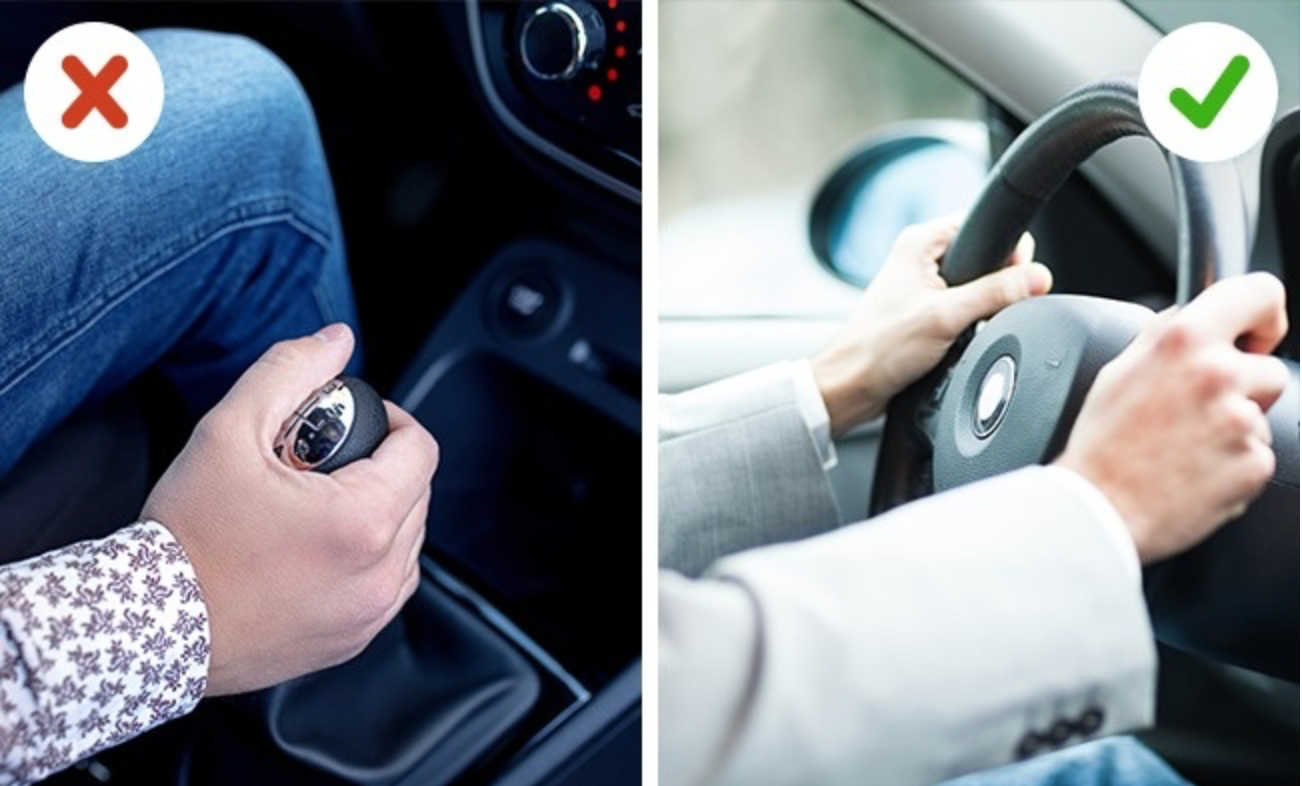 |
Suddenly shifting gear while the car is in reverse
Many drivers, to save time when reversing, often shift into drive (1 for manual transmission and D for automatic transmission) even when the car has not actually stopped. Such sudden gear changes are one of the major causes of damage to the car's transmission.
According to automotive engineers, if the transmission is still in reverse and suddenly forced to change to the opposite direction, it will cause rapid deterioration of the gearbox gears and shafts, which can lead to gearbox failure. Therefore, only shift from reverse to forward and vice versa when the vehicle has come to a complete stop.
Ignore the warning symbols on the dashboard
We need to understand that a car is a modern machine and the warning lights on the dashboard do not come on naturally, they only come on when your car is having some problem. There are many types of warning lights such as: check engine, handbrake warning, airbag warning, electric power steering warning, temperature warning, oil pressure warning...
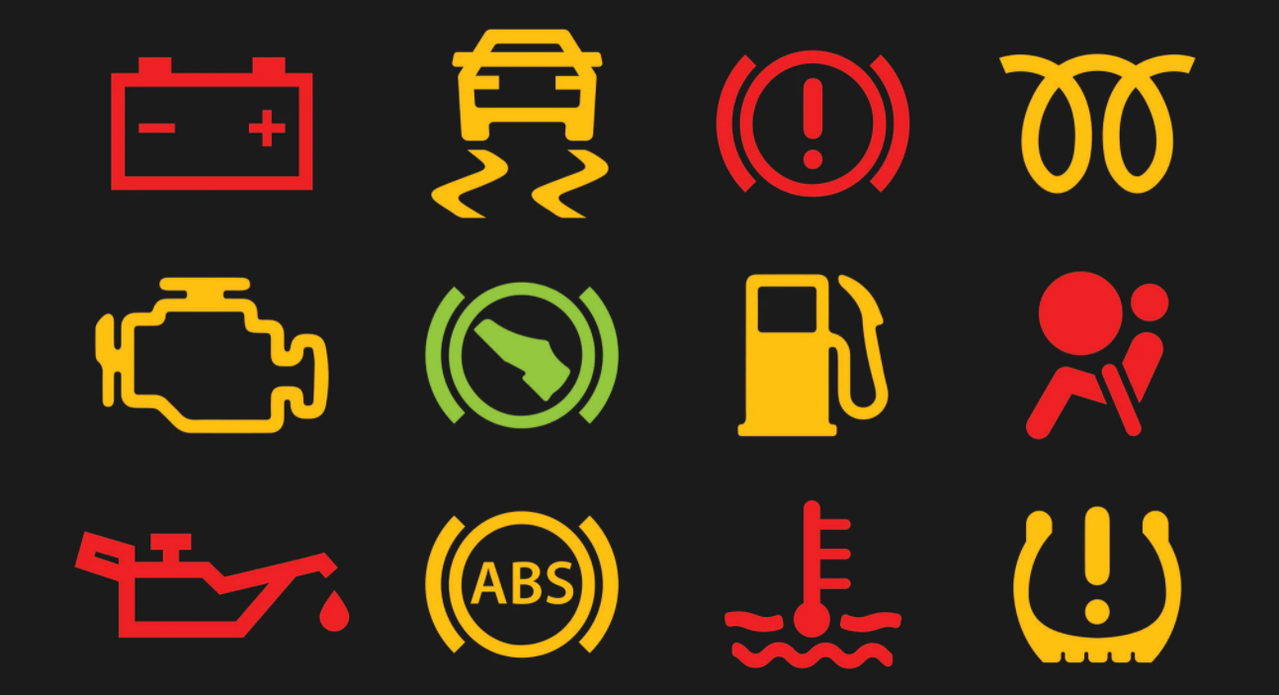 |
Although some warnings may not be urgent and do not pose an immediate danger to driving, ignoring these warnings over time can result in you spending a lot of money on car repairs.
Therefore, when detecting a warning light on the dashboard, it should be handled immediately or brought to a reputable garage for timely diagnosis and repair.
Check brakes when going downhill
Brakes are a part that helps reduce speed in emergency situations and should be used as little as possible. When the brakes have to work continuously at high speeds, the inertia and friction will cause the discs and brake pads to burn out, leading to brake failure. In addition, due to working under high pressure, the hydraulic system can be disabled.
Therefore, when going downhill, we should absolutely avoid continuously applying the brakes. Instead, we should go slowly by using the appropriate gear. For manual transmission, follow the principle of "up gear, down gear", and for automatic transmission, we can shift to a lower gear (L, L1, L2,... depending on the vehicle).
Do not slow down when going over potholes
Going into potholes or speed bumps at high speed not only damages tires, shock absorbers, and chassis, but also makes the passengers uncomfortable.
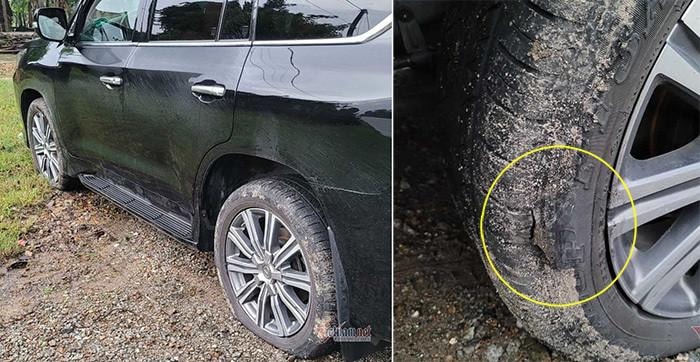 |
There are many cases of billion-dollar SUVs also having their tires blown out due to running over potholes on the road, causing danger, wasting time and economic losses. Therefore, when driving on bad roads, drive very slowly. At the same time, drivers need to observe and proactively avoid, reduce speed when seeing potholes or obstacles on the road.
Steering dead, steering all the way
Dead steering is when the driver turns the steering wheel when the car is stopped, the wheels do not turn but still move to the right or left. Frequent dead steering can damage the steering system because at that time, the entire power steering pump, steering rack, tie rod, ... must operate at a high level due to high friction.
Not only that, dead steering also causes tire wear quickly because at that time the front tire creates sliding friction with the road surface instead of rolling friction. If you are unlucky enough to steer in a place with gravel or sharp foreign objects, the tire can also be punctured. Therefore, you should practice steering to steer accurately, especially when reversing; practice the habit of stopping steering when the car stops, and not steering when the car is not moving.
In addition, when driving, changing direction, you should not turn the steering wheel all the way because this can cause pressure drop in the oil power steering pump and damage the power steering pump if maintained regularly. Therefore, if you are using a car with oil power steering, instead of turning the steering wheel all the way, release the steering wheel a little to make the power steering pump last longer.
Lazy to use handbrake when parking
According to auto experts, for automatic cars, even when parking on a flat road and in P mode, you should still use the handbrake.
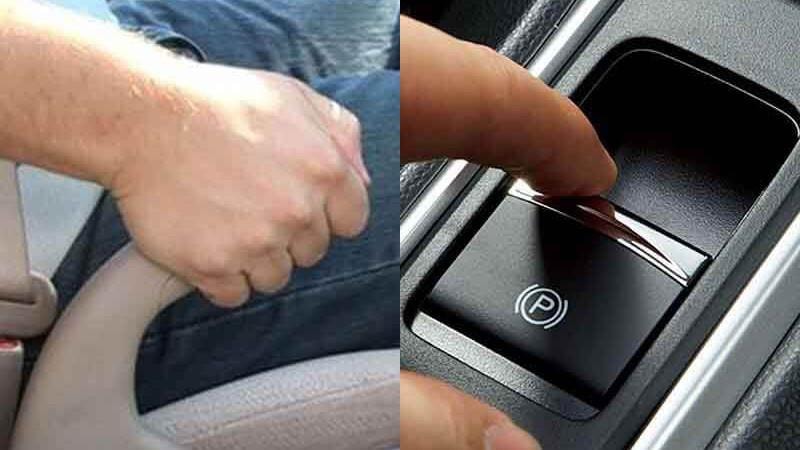 |
According to the principle when parking, the entire weight of the car is concentrated on a very small part, only the size of a finger, the parking pawl. This part is very easy to wear or break, so pulling the handbrake is a measure to help support and increase the life of this parking pawl.
The steps when parking an automatic car are recommended by experts as follows: Press the foot brake to stop the car completely, pull the handbrake, then move the gear lever from D to P, then turn off the engine.
In addition to the above habits that need to be stopped immediately, experts also recommend that you should take your car for regular maintenance and use solutions such as engine oil, power steering fluid, brake fluid, coolant, etc. according to the manufacturer's recommendations. At the same time, always keep your car clean both inside and out.

